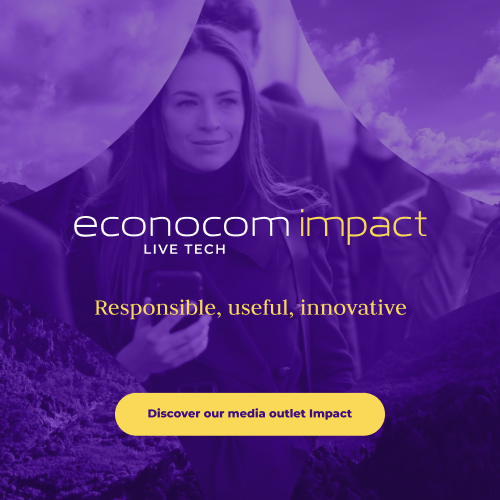
Michael Jacobsen
How can you help transform retail?
Diebold Nixdorf designed the StorevolutionTM program to support retailers in the rapidly shifting modern environments. We anticipate four essential milestones retailers have to address moving forward to keep their businesses relevant and competitive: consumer centricity, store digitization, high connectivity and store as a service. Our Storevolution™ approach provides retailers with a high flexibility to respond to slight changes or even to global transformations through an IT environment that enables satisfying shopping experiences for consumers at the lowest possible TCO for the retailer. Thus, the Storevolution™ program can help drive sustainability in retail and help businesses to reduce their ecological footprint. To learn more: Diebold Nixdorf - Blog: The Topic of the Time is Retail Sustainability
How would you define a responsible company?
A responsible company works as a caring and kind corporate citizen; one that recognizes all of the ways that an organization touches and impacts the world around itself. Additionally, it covers the three main ESG parts we are also focusing: It connects commerce customers and global consumers in ways that protect, care for and minimize harm to the environment. It works through caring global citizenship by maintaining fair, diverse and safe workplaces and gives back to all relevant communities and it ensures best practices in governance on behalf of all stakeholders, while growing its business in sustainable ways through its commitment to key values and ethics.
What challenges do firms in digital technology have to meet to improve their CSR impact?
In addition to the moral obligation that the United Nations Environment Programme (UNEP) put on retailers, today’s powerful consumers are also seeking more sustainability in retail, and they vote with their feet and their wallets. Consumers' demands for sustainable retail are changing, forcing each and every retailer to adapt very quickly to changing shopping habits. Technologies and solutions that help consumers achieve a sustainable shopping experience are becoming more critical to success, and around the globe the use of self-service solutions like self-checkouts and self-ordering terminals, as well as cashless payment solutions, has increased in the store environment.
How do you foster innovation at Diebold Nixdorf?
When considering the Product Innovation, Research and Development (R&D), Systems, and Quality organizations, Diebold Nixdorf is clearly focused on creating and developing low carbon assets for the company's banking and retail customers. Diebold Nixdorf analyzes the lifecycle of banking and retail systems which includes the design by quality and environment approach. The company proactively reviews the environmental impact of the manufacturing process, the product's operational life, and ongoing product support. Through these efforts, the company is focused on reducing service calls, cash-in-transit replenishments, and parts replacement through the product and material recycling and recovery process of critical components through Diebold Nixdorf's product stewardship programs.
How did Econocom’ s CSR impact policy influence your choice?
This was one of the key factors during our decision-making processes. Econocom is committed to leadership in Environmental, Social and Governance (ESG) matters. Part of this commitment includes sustainable operations, which are vital to customers and stakeholders. Econocom’ s focus includes reducing greenhouse gas (GHG) emissions, promoting recycling and not only use environmentally sustainable materials, but also implement circular economy approaches.
